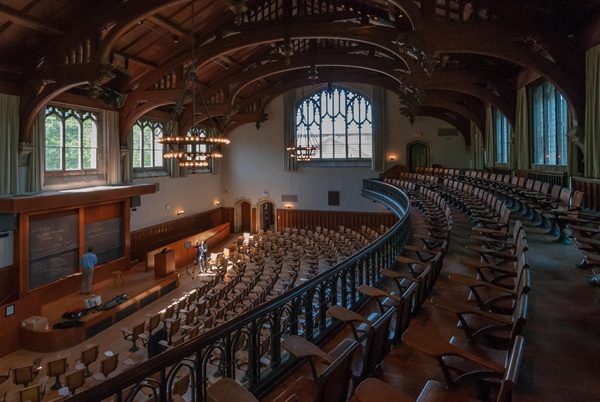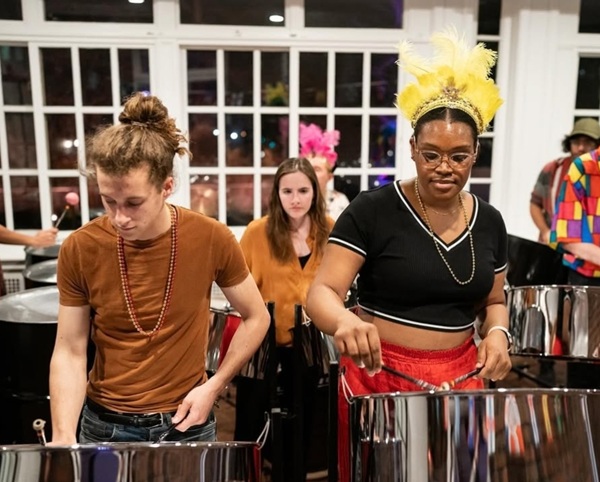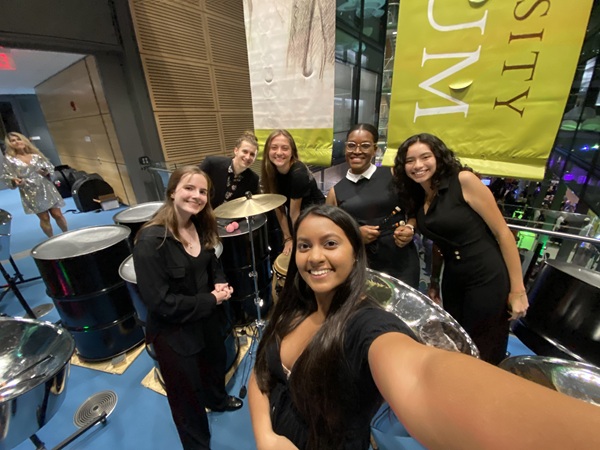My four years at Princeton are flying by, and there are so many classes I would love to take if I had more time. If I listed them all, it would probably be the length of a senior thesis, so here’s a selection of my top 7:
Making an Exoneree (Department: School of Public and International Affairs)
Making an Exoneree is one of the most unique courses I have ever come across. The course was started by a professor at Georgetown University who helped to exonerate a childhood friend who spent almost 18 years in prison for a crime he did not commit. An intensive, hands-on course, students have contributed to freeing three wrongfully convicted individuals since its inception at Princeton in 2018. Students describe the course as "life-changing... If you want a real look into the criminal legal system and care deeply about justice, then this course is something you absolutely should take during your time at Princeton."

Last spring’s documentary showcase International Organizations (Department: Politics)
Taught by Professor Vreeland, an expert in international political economy, International Organizations has quickly become one of the most popular courses at Princeton, with enrollment exceeding the 400-person cap every semester it is offered. The course examines the origins, effectiveness, and future of institutions from the UN and WHO to the European Union and African Development Bank. I had to see what the buzz was about and sat in on a lecture during shopping period last spring, and I would have given an arm and a leg to take the class. Professor Vreeland was an extremely engaging lecturer, making memorable references to popular songs and movies, and keeping students on their toes by asking for participation using a random name selector. He also cares deeply about students inside and outside of the classroom and regularly publicizes and attends students’ performances. This course review says it all: "Professor Vreeland teaches you how to read, how to think, and how to learn at a fundamental level. He's the quintessential educator: a professor who wants his students to learn for the sake of learning and knows exactly how to motivate them and work with them. You should not leave Princeton without taking this course." What a shame I’ll have to do so!

McCosh 50, the largest lecture hall on campus, where International Politics is held. Source Poverty, by America (Departments: Sociology and African American Studies):
I still remember reading Evicted on a sunny afternoon during a summer in junior high and the impression it left on me of the challenges of facing housing insecurity. I was impressed to discover that the author, Matthew Desmond, had spent a year living among the eight families featured in order to write the book. When a friend told me that she worked with Professor Desmond in the Eviction Lab at Princeton and was taking a class taught by him, I knew it would be among the top on my wishlist.
The Great Russian Novel and Beyond (Department: Slavic Languages and Literatures)
I love to read (send me an email if you have any book recommendations!). Last fall, I was looking for a literature course to fulfill my remaining literature and the arts distribution requirement and a good friend of mine (who was actually my Community Action orientation leader) recommended this introduction to Russian literature. I enrolled in the course and discovered that it was a hidden gem tucked away among the many interesting literature classes available at Princeton. Professor Chances clearly loves the books, and I was eager to learn about famous and lesser known works of Russian literature in a small class setting. The weekly precept (small group discussion) was led by Professor Chances and only had four students! Unfortunately, I had never read any of the books before so I was having trouble keeping up with the reading. I made the difficult decision to drop the course at the end of the second week, known as add/drop or shopping period. I was able to borrow the books for the semester through the University library, so I hope to finish Fathers and Children and read Anna Karenina once classes end.
Beginner’s American Sign Language (Department: Linguistics)
Princeton began offering for-credit ASL courses in 2018 which could be used to fulfill the foreign language requirement starting in 2021. I would love to learn a language which uses a completely different part of my brain, gain a better understanding of deaf culture, and think about how we can increase accessibility for individuals who are hard of hearing. Former blogger Naomi wrote a wonderful post about learning ASL three years ago which makes me want to at least shop ASL101 in the fall.
Princeton University Steel Band (Department: Music)
Steel Band is another popular course in which students learn how to play the steelpan, an instrument originating from Trinidad and Tobago with a beautifully resonant sound. The course is P/D/F only, which means students receive a “pass”, “D”, or “fail” for the course, removing the stress of receiving a good grade (read more in Jocelyne’s blog post about P/D/F classes). Almost every review reads, “Take this course!” and one student commented that they’ll be talking about it for many years after Princeton. Although I won’t be able to fit it into my schedule, I plan on attending the class performance at the end of April which will also feature the student steelpan ensemble TigerChunes, led by one of my friends!

TigerChunes at work! Photo credit: Aleigha Reynolds 
Photo credit: Aleigha Reynolds Practical Ethics (Departments: Center for Human Values and Philosophy)
Last but not least, I wish I could have taken Practical Ethics, which discusses topics ranging from abortion to the ethics of what we eat, and actually made my Outdoor Action co-leader become vegetarian. Taught by Professor Peter Singer, author of a number of fascinating books including Animal Liberation and The Life You Can Save, students praised the application of different ethical theories to real-world issues and Professor Singer as an “excellent lecturer, speaker, and arguer.” Unfortunately, the course is no longer offered following Professor Singer’s retirement in 2023, but I hope he will return to give an occasional lecture!
Honorable mentions include:
- Analog Photography, or any course in the Visual Arts department
- The Glass Class, a freshman seminar on the science and art of glass which travels to Venice over the break!
Clearly, I could go on. Princeton offers a wide array of unique courses which stretch students in different ways, whether by learning a new language on campus or abroad, engaging with community members and organizations, or simply discussing topics and authors you had never heard of before. As my time at Princeton comes to a close next semester, I am grateful to have had access to scholars, professors, and students who continue to stimulate my intellectual curiosity and teach me something new every day.






